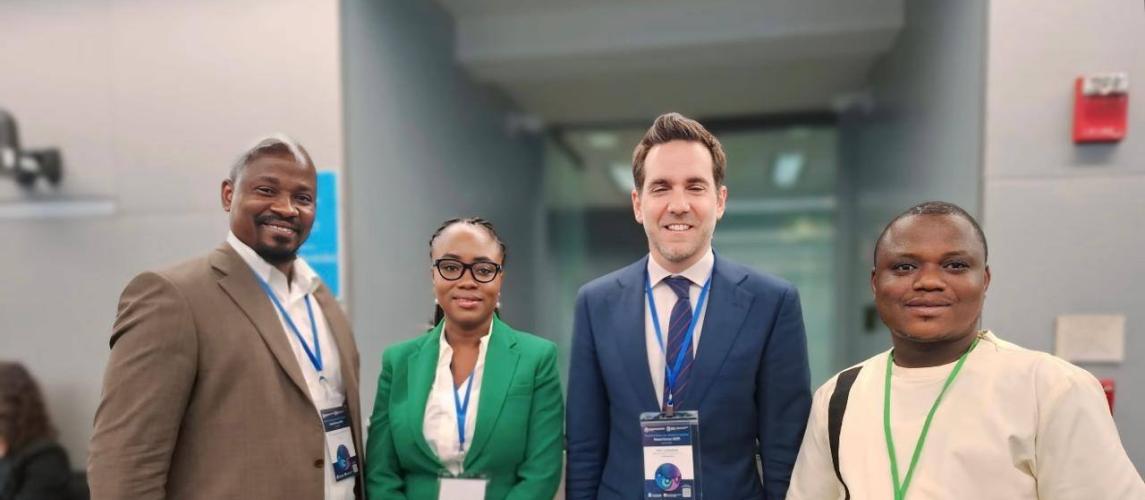
Liberia’s Journey to Lasting Peace: Chairperson Zoe Speaks at World Bank Forum on Corruption in Fragile States
Liberia’s Journey to Lasting Peace: Chairperson Zoe Speaks at World Bank Forum on Corruption in Fragile States
Washington, D.C. At a high-level World Bank forum held in the United States capital, on April 8-9, the Executive Chairperson of the Liberia Anti-Corruption Commission (LACC), Cllr. Alexandra Kormah Zoe, served as one of the distinguished panelists for a powerful session focused on “Corruption in Fragile, Conflict, and Violence Affected Contexts.
In her compelling address, Cllr. Zoe highlighted that Liberia’s path to peace and stability has been deeply intertwined with the fight against corruption a battle that remains just as critical today as the restoration of security in the aftermath of the nation’s brutal civil conflict.
“Corruption is not just an issue of governance,” she emphasized. “It was a trigger that helped accelerate years of senseless war in our country. That’s why tackling corruption had to be part of the peace solution not an afterthought.”
Speaking to an audience of global development partners, policymakers, and civil society leaders, Cllr. Zoe recounted how Liberia’s 14-year civil war, which ended in 2003, was fueled in part by entrenched corruption that eroded public trust and dismantled state institutions. She noted that following the war, the return of warlords to government positions undermined early efforts at reform and disillusioned both citizens and donors.
To regain trust, Liberia, with support from international partners such as the World Bank, the EU, and the United Nations, adopted the Governance and Economic Management Assistance Program (GEMAP). This bold initiative introduced international oversight into public financial management a game-changer in signaling Liberia’s commitment to transparency and reform.
Cllr. Zoe reflected on the evolution of the LACC since its establishment in 2008, highlighting that while the Commission was initially limited in its mandate, public demand for accountability led to the expansion of its powers to both investigate and prosecute corruption cases directly.
Today, the LACC not only enforces the law but also works to shape public attitudes through education, outreach, and strong partnerships with civil society and the media. Liberia has also taken critical legislative steps with the passage of the Whistleblower and Witness Protection Acts, the National Code of Conduct, and the establishment of the Office of the Ombudsman all key components of a growing anti-corruption framework.
Cllr. Zoe also acknowledged the historic significance of the 2005 democratic elections and the leadership of former President Ellen Johnson Sirleaf in driving early reforms. She pointed to the Truth and Reconciliation Commission (TRC) as a key mechanism for uncovering past abuses and laying the groundwork for institutional renewal.
Despite progress, challenges remain. “We are working under tight resources and political pressure,” Cllr. Zoe admitted, “but we are undeterred. We know this is a long journey.”
She closed with a powerful reminder: “Good governance and anti-corruption are not just technical issues. They are the foundation for trust, development, and ultimately, peace.”
As Liberia moves forward, the message is clear the fight against corruption is not simply a policy issue, but a moral imperative that honors the past and secures the future.
“Restoring security was our initial mandate,” Cllr. Zoe concluded, “but we soon realized that true, enduring peace could only be achieved by embedding integrity into every layer of governance.”
Liberia’s story continues to inspire not just as a nation recovering from war, but as one boldly redefining itself through transparency, accountability, and the relentless pursuit of justice.
